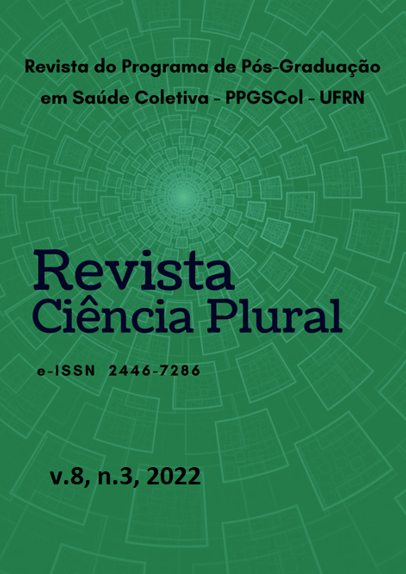RELEVÂNCIA DA DEAMBULAÇÃO PRECOCE NO TEMPO DE INTERNAÇÃO HOSPITALAR DE PACIENTES IDOSOS
DOI:
https://doi.org/10.21680/2446-7286.2022v8n3ID28627Abstract
Introduction: In Brazil, the population considered elderly represents the age group that most uses hospital services. Even though an important resource, frequent hospital admission or for a prolonged period of time can generate functional impairments for this public. The practice of early rehabilitation helps to minimize and prevent the deleterious impacts of immobility, favoring functional capacity, decreasing the length of hospital stay and promoting quality of life. Objective: The study aims to observe the relevance of early mobilization in the elderly, as well as the damage caused by immobility during hospitalization. Methodology: This is an integrative review with an online search in the PEDro, PUBMED, MEDLINE, LILCAS and SciELO databases. The descriptors were: early mobilization, immobility in the elderly and their respective in English. Articles published between the years 2016 to 2020, in Portuguese and foreign languages, were used. Results: Five articles were selected for discussion, using Precision Early Ambulation as a safety threshold for cardiac rehabilitation; the influence of early rehabilitation and rehabilitation therapy in patients with more than 72 hours of prolonged mechanical ventilation was evaluated; it was observed the intensification of postoperative physical therapy, with deep breathing exercises and early mobilization; geriatric interdisciplinary home rehabilitation in elderly patients with hip fractures was evaluated to improve mobility and reduce postoperative hospital stay. Discussions among the authors unanimously point to the approval of ambulation and early mobilization. Conclusions: Early mobilization proved to be effective both in patients in hospital care and in the home environment, significantly reducing the damage caused by immobility.
Downloads
Downloads
Published
How to Cite
Issue
Section
License
Copyright (c) 2022 Revista Ciência Plural

This work is licensed under a Creative Commons Attribution-NonCommercial-ShareAlike 4.0 International License.
À Revista Ciência Plural ficam reservados os direitos autorais referente a todos os artigos publicados.

 Português (Brasil)
Português (Brasil) English
English Español (España)
Español (España)










2.png)
